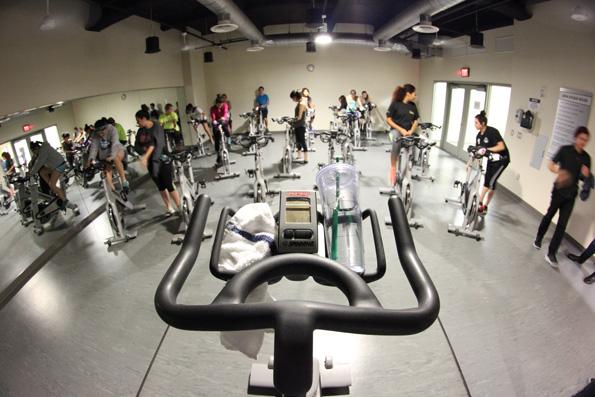The Wellesley College PE requirement has become more “physical” than “education” as I find myself running in literal circles to reach the golden gate of graduation. It wasn’t until Friday morning, Feb. 7, when I ran from the Tower steps to the dean’s office that I began to realize, or, rather, remember that I had to address PE credits for the completion of my degree.
I am now a second semester senior at Wellesley and it is well after the College’s add period; it may seem strange that this fact of our institution struck me only now, but I knew — or I had been told, or I thought — that I had a pretty good handle on my PE requirement. I knew I had to accumulate a total of eight PE credits by registering and, importantly, actually attending, two to four PE classes. There was the option to satisfy this requirement by joining a varsity team, but I have neither the upper body strength for crew, nor the desire to join any team team whose mascot is “The Blue.” So, instead, I registered for archery and pilates, and crossed my fingers for rumored club sport credits from a club that was not officially a club sport. However, honestly I had no idea if that was the right choice, or if it was going to be enough to let me graduate. I did know a peer who had done about as much to satisfy the requirement as I had, and I knew that I was promised those last credits from my non-club-sport club, but that was all I had: a gist and a promise and a whole lot of hope.
Before I set out to discover the status of my PE completion this February, I wondered why exactly there was a requirement at all. I was not thrilled with my conclusion: the PE requirement is antiquated and inconvenient. Students should be able to take advantage of the department freely — and if they don’t decide to take PE courses, it should never bar them from the diploma we’re all paying through the nose for.
My first thought was: “Wouldn’t it be nice if I could test out of the PE requirement?” And God, it really would be more convenient — but what kind of physical test could possibly be fair to all students, regardless of ability and fitness background? Any test worth its salt would inherently have those that pass and those that don’t, so there would have to be some sort of metric — but any metric for assessment would undoubtedly be exclusionary and, inevitably, ableist. How could an equitable test be designed for a concept so subjective?
But again, what is the purpose of the PE requirement? The department page on the Wellesley website claims that the program seeks to “help students develop skills and knowledge of regular physical activity that leads to a healthy lifestyle.” An admirable goal, surely, but what if we were to question what healthy is? There’s so much conjecture about the link between body, weight and health, and fair science defining fitness is in its infancy. BMI, for example, was developed in the 1830s. The modern concept of obesity was defined in the mid-twentieth century, mainly for the benefit of insurance companies, and was only determined a disease by the American Medical Association after overriding the opinions of its own expert panel — who stated correlations between “obesity” and mortality rates did not imply causation. Considering the prevalence of fatphobia in our culture — which has lead to wage inequality and biased medical care among other effects, such as social isolation and depression — and the intersectional causes that underlie the disease, like socio-economic status and systemic injustice, the concept of an objective fitness metric is nearly impossible to design. The real merit of physical education courses would not be to keep students “fit” and “healthy” by society’s standards, nor by modern medicine’s unfounded standards — but would instead serve to educate the student on their individual physique and wellness. Some of this education occurs during first-year-only gym courses, in which students “learn the fundamental principles and benefits of exercise… [and] nutritional concepts that assist them in making healthy eating choices,” according to the website. After that first year, however, there’s much less actual physical education and a lot more spin class. As fun as pretending to bike to Ariana Grande is, I don’t know if I would qualify that as Wellesley-level education. I’ve found that while I have honestly enjoyed my gym classes at Wellesley, I’d enjoy them infinitely more if I wasn’t being forced to participate in them. I’m not coming to Wellesley to become a bodybuilder or a personal trainer, and neither are most students. I’m here to study, and it gets difficult to fulfill academic obligations when the College adds yet another load onto students’ already hefty schedule.
I have a lot of respect for the PE department. I am fortunate to have never had a bad experience in one of their classes and I use the Keohane Sports Center regularly. Moreover, I admire their first-year-onfly PE courses for their breadth of health education interspersed throughout my first semester at Wellesley. That for me is what the PE requirement should be: a semester-long course reminding students how to take care of their physical and mental health when they’ve maybe never done so on their own before. When you add course after course to complicate something that should be simple enough, however, people are going to start to resent the requirement — when the program, with adjustment, has the potential to really benefit the student body in monumental ways.




